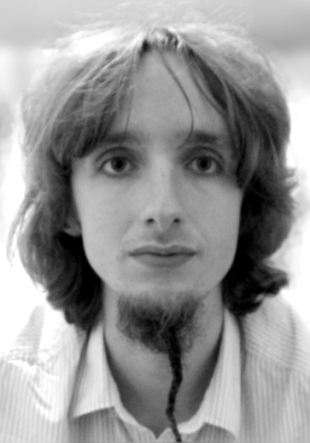Professor Martin Brehm is researching the computer-aided analysis and prediction of material properties
How can material properties be described, or even predicted, using computers? This is the subject of the research being conducted by Professor Martin Brehm, who was appointed a Heisenberg professor at Paderborn University this year. ‘Our goal is to develop methods that offer reliable predictive power – even for substances that have never before been produced or measured on Earth’, the head of Paderborn University’s new ‘Theoretical Spectroscopy’ research group explains. The renowned Heisenberg professorship from the German Research Foundation (DFG) is part of the Heisenberg funding programme, and offers universities an incentive to create new tenured professorships for exceptional young researchers who have already met all of the appointment requirements.
Theoretical chemistry meets supercomputers
Brehm’s research work is made possible by using quantum chemistry. The researcher explains: ‘The behaviour of microscopic systems, such as molecules, is fully described by the Schrödinger equation within quantum research. However, this does not require data about the specific substance, but instead functions universally. This makes it essentially a “miniature theory of everything”’. However, numerous time-consuming calculations are required to solve the Schrödinger equation and thus make predictions about previously unknown substances or check products’ purity. To do this, the chemist is using the ‘Noctua 2’ supercomputer at Paderborn University’s Paderborn Center for Parallel Computing (PC2).
The supercomputer is enabling Brehm to develop methods for analysing and predicting fluids. ‘There are decades-old processes for individual molecules in a vacuum and for crystalline solids. However, fluids are disordered and constantly moving on a microscopic level. Effects that could not previously really be incorporated into calculations play a major role here. That is what we are working on’, the researcher notes.
Improving understanding to enable pioneering solutions
With this fundamental research being conducted in Paderborn, Brehm and his team are seeking to establish a better understanding of the underlying effects and interactions. Specific application scenarios demonstrate how important these methods are for the practical world. Brehm’s research is focusing on areas such as ionic liquids. ‘This is a class of substance that is often treated as a “green solvent” or “solvent of the future” thanks to its particular properties’, the chemist explains. For example, ionic liquids can dissolve cellulose, which was not previously really possible with any other solvent. Among other things, this has the potential to revolutionise the paper industry: ‘Thus far, paper production has produced large amounts of contaminated waste water, which could be significantly reduced using ionic liquids’, he emphasises.
Brehm is also developing relevant software to enable these new computer-aided methods to be employed by other researchers. This will provide researchers across the world with open, free access to the methods being developed in Paderborn, so that they can explore other open research topics.

![[Translate to English:]](/fileadmin/_processed_/9/e/csm_UPB_Martin-Brehm_Jennifer-Bounoua_69ca93d553.jpg)
